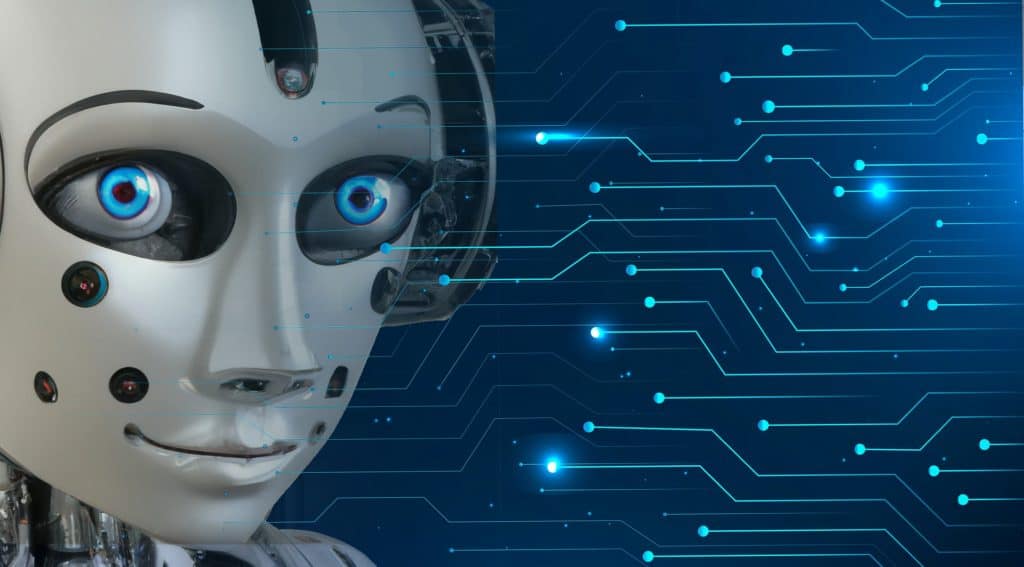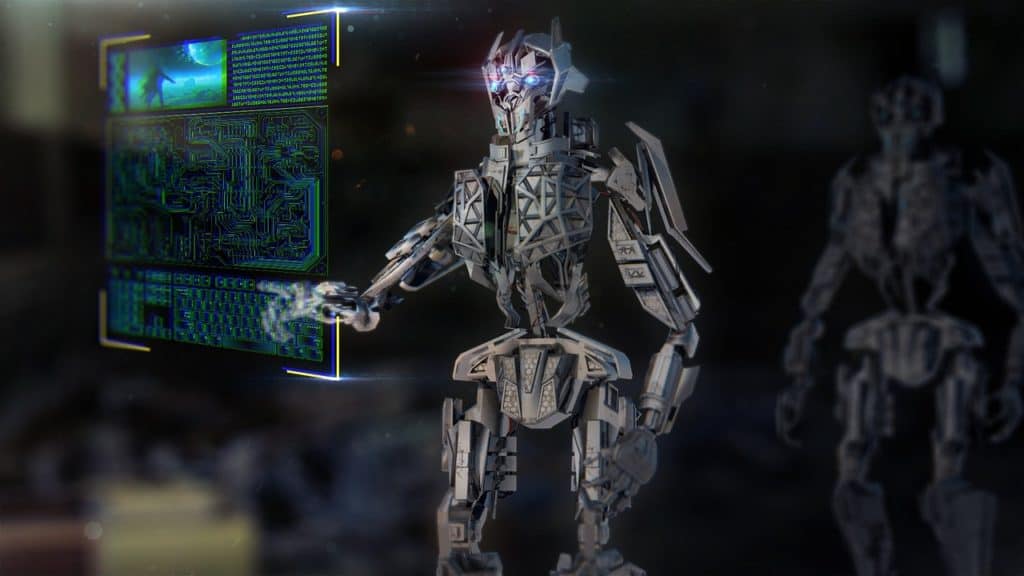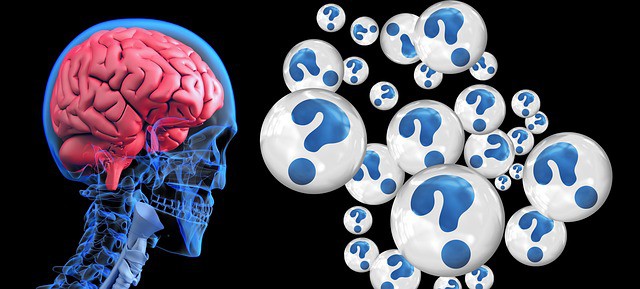Can engineers use AI responsibly?
As artificial intelligence (AI) continues to evolve, there is an ongoing debate about whether engineers can use it responsibly. Some experts believe that AI presents a danger to society.
Others argue that it can be used safely if handled correctly. So, who is right? And what does this mean for the future? Can engineers be trusted to use AI responsibly?
We will begin by first exploring what AI means and several epochs in its developments. Then we will delving into the main points of the discussion by following the outline below:
Outline
- What is artificial intelligence?
- The history of engineers and artificial intelligence
- Ethical concerns around engineers using AI responsibly.
- Addressing the challenges
- Benefits of responsible AI use to engineers
- Benefits of responsible AI use to the society
- Implications of responsible AI use on sustainability
- Summary
- Final thoughts
What is artificial intelligence?
AI is an area of computer science that focuses on creating intelligent machines that can think and act like humans.
Activities involving the use of AI can include learning, problem-solving, decision-making, language processing, understanding and many more.
AI-based systems can be designed and trained to learn from experience. They can also be made to recognize patterns, adapt to new situations.
AI can improve their performance as time progresses without any need for explicit programming. There are many emerging subfields or branches of AI.

These includes machine learning, deep learning or artificial neural networks, natural language processing, robotics, and computer vision.
These fields rely on different kinds of algorithms and techniques to perform specific tasks. There are many areas of application of AI.
These are crime detection, healthcare, finance or banking, manufacturing, and transportation, movie industry, gaming, etc.
The history of engineers and AI
The history of engineers and AI dates back many decades, to the early days of automation and computer science.
20th century
Some of the early generations of AI programs were developed by a group of engineers and computer scientists namely Marvin Minsky, John McCarthy, and Claude Shannon in the mid-20th century.
These pioneers set the stage for the field of AI and laid the groundwork for further development of intelligent machines.

1950s and 1960s
During the 1950s and 1960s, computer scientists and engineers focussed on developing expert systems. These were designed to imitate the learning and decision-making capabilities of humans.
However, these AI systems were quite limited by the computational power available at the time.
Notwithstanding, these developments provided the foundations for even more sophisticated systems and technologies in the years following.
1970s and 1980s
In the 1970s and 1980s, engineers began to concentrate on developing machine learning algorithms.
This very epoch paved the way for machines to learn from data through some form of training and gradually improve their performance over time.
This era saw the development of very important AI applications and technologies. These includes natural language processing and computer or machine vision.
1990s and 2000s
The 1990s and 2000s saw significant advances in AI systems and involved the development of artificial neural networks (ANN), deep learning algorithms, and reinforcement learning.
Consequently, engineers were able to develop even more complex AI systems with the capacity to perform some wide-ranging tasks.
Such activities included image and speech recognition, natural language processing and autonomous decision-making.
21st century
In the present and modern day, engineers have continued to push the boundaries of AI technology.
They have succeeded in developing new applications while also refining existing ones. The opportunities and benefits that can be derived from AI are very enormous.

However, engineers are now grappling with their ethical, social, political, and cultural implications.
Hence, several avenues are being continuously explored to ensure that AI systems are developed and used in a responsible manner.
From the foregoing, one can appreciate that the history of engineers and AI is rich, complex and spans several decades.
Engineers have played a crucial role in the advancement of this exciting and emerging field. Therefore, as AI continues to grow and evolve, engineers will continue lead the charge in shaping its developments and applications.
Ethical concerns around engineers using AI responsibly
Engineers have been key in the development and implementation of many different technologies over the years. In general, engineers have more often than not earned their place in the society.
They are most times perceived as responsible and trustworthy professionals. However, there are some concerns that AI may be too complex for even the smartest engineers to handle properly.

At the very heart of this issue is the fact that AI can have a tremendous impact on people’s lives. AI has the capacity and potential to revolutionize the way we all live and work.
Recent developments in the field of autonomous vehicles and pattern or facial recognition technology all confrim this.
However, if these systems are not developed and used in a responsible manner, they could have serious consequences.
One worry is that AI could be used for malicious intent and purposes. This could involve creating powerful robots that can overthrow humans or hacking into systems to steal sensitive information.
Another concern is that AI could accidentally cause harm if it makes mistakes in its decision-making processes.
For example, if a self-driving car gets into an accident, it could be because the AI made a bad decision about how to avoid the collision.
Another concern is that due to AI’s subjectivity and malleability, misuse could lead to catastrophic consequences.
For example, when Google’s DeepMind AlphaGO defeated South Korean Go grandmaster Lee Sedol in 2016, people began to speculate about the potential consequences of AI being used for strategic military operations.
Therefore, it is important to carefully assess the ramifications and appropriate regulations in any application or use of AI technology.
Addressing the challenges
Ethical consideration
It is important to ensure that the development of AI systems remain consistent with ethical principles such as fairness, responsibility, transparency and respect for human autonomy.
It is also essential to determine how responsible AI will handle data and other sensitive information.
This should be ensured while adhering to privacy regulations such as the General Data Protection Regulation.

Furthermore, AI developers should strive to integrate human values into the design of their systems.
This is acheived by considering the potential consequences of any actions taken by an AI system—both good and bad.
Designing and deployment of any kind of AI must take into account these ethical parameters before proceeding with any project.
The engineer’s role
Engineers have a crucial role to play when it comes to the development and use of Artificial Intelligence (AI) systems.
Through their unwavering dedication and innovative problem-solving skills, engineers are required to ensure that AI systems are properly monitored and evaluated before use in order to protect human autonomy and dignity.
This includes making sure that the technology adheres to safety protocols, respects data privacy laws, avoids potential legal issues or ethical complications, and produces the desired result efficiently while wasting little energy or resources.
Engineers must also be responsible for making certain that those involved with developing AI systems are held to high ethical standards, ensuring substantial accountability for any possible repercussions from AI use.
With proper engineering oversight of artificial intelligence initiatives, humanity can move further into advanced technology with the assurance that there will be no loss of life or property due to malfunctioning AI.
So far, there have been no major incidents involving AI causing harm due to human error. However, this doesn’t mean that it couldn’t happen in the future.
As AI becomes more advanced and widespread, it’s important to make sure that engineers are using it ethically while taking precautions to prevent any accidents or misuse from occurring.
Benefits of responsible AI use to engineers
For engineers, the responsible use of AI can provide numerous beneficial opportunities. Not only can AI be used to optimize an engineer’s time and efforts in areas like product design and supply chain management, but it can also improve decision-making accuracy and reduce maintenance costs.
In addition, by leveraging real-time data that AI collects and stores in its systems, engineers can better anticipate, plan for, and adapt quickly to changing customer demands and preferences.
By investing in the right kind of AI technology and taking the time to properly train employees on how to use it responsibly, engineers have the potential to streamline processes while never compromising quality or safety.
Benefits of responsible AI use to the society
Artificial Intelligence (AI) is an ever-evolving technology with the ability to revolutionize society and solve many industry-specific issues.
AI has implications far beyond our technological achievements, as its potential benefits for society as a whole can dramatically reduce poverty, inequality, and environmental degradation.
AI-driven predictive analytics can improve the efficiency of public services like healthcare, transportation, and renewable energy sources, resulting in improved delivery and cost savings for everyone.
Additionally, responsible AI use will enable us to better analyse large datasets of global trends, helping decision makers and government agencies identify problems and implement effective solutions that benefit all citizens.
Intelligent systems are also essential when tackling climate change as they advance cutting edge technologies such as robotic sea vessels analysing ocean temperatures or autonomous agricultural drones monitoring crops.
Ultimately, responsible AI use has the power to change society for the betterment of mankind by optimizing efficiency and opening up opportunities for all people.
Implications of responsible AI use on sustainability
AI has the potential to greatly reduce our environmental impact, but only when used responsibly. AI systems can find new sources of renewable energy or help us reduce wastage in urban infrastructure.
However, this potential is compromised when the structures underpinning AI deployment are not managed thoughtfully and robustly.
We need to ensure that we have strong regulatory and governance frameworks in place to carefully monitor how AI is evolving and developing so that it remains sustainable and beneficial for society.
Responsible AI use can also be incentivized through economic means, such as public/private partnerships or regulating carbon taxes which will ultimately benefit both people and the planet if implemented successfully.
The implications of responsible AI on sustainability are vast, and it is now up to us to ensure its positive use in society moving forward.
Summary
Since AI has come to stay, engineers have a unique responsibility to make use of it responsibly when creating new technologies.
Practicing social responsibility means understanding how our decisions impact society and applying ethical standards of behaviour when crafting AI solutions.
Being mindful of the potential for AI to reduce bias and increase affordability in digital systems is also key.
Additionally, it’s important to prioritize unintended consequences caused by automated decisions, such as inappropriate outcomes generated using biased data sets.
That is why it is essential that engineers test their algorithms prior to deployment, equipping them with tools to monitor outcomes and help identify poor performance that might result from an AI system.
Ultimately, engineers must be accountable for the products they create through AI technology.
They should design with the purpose of benefiting all in the societey without infringing upon individuals’ safety or privacy.
Final thoughts
To conclude, it is important to reiterate the ethics behind AI technology. Engineers should strive to use AI responsibly, in order to ensure that society can reap its benefits without going too far and overwhelming or alienating those whose lives can be affected by it.
By working collaboratively with stakeholders and adopting best practices, engineers can help ensure that AI is used in ways that are beneficial to their business and the society as a whole.
More so, AI can help us address current challenges as well as increase sustainability and acceptance while not taking away from human values.
Responsible AI use will ensure that progress remains ethical and responsible, and therefore helps create a better future for us all.
So, if you’re an engineer and are ready to tap into the potential of artificial intelligence, don’t forget about what it means for our world!
Together, let’s proactively build a positive impact that’ll last. Come join us in this journey – bingo!
Frequently asked questions (FAQ)
What are some best practices for using AI responsibly?
There should be a commitment to safety and privacy measures, including protecting users’ data.
Companies can ensure that any bias present in the training data used by their AI systems is addressed with fairness. This is should be done before any decision making is conducted on behalf of their users.
Being proactive in mitigating potential issues and proactively educating personnel involved in both the development and usage of AI technologies.
What are some ethical considerations for AI?
We must consider computer errors which may lead to bad decisions when it comes to autonomous cars for instance.
We need to consider data privacy rights and how information collected by AI systems is used, stored and shared.

I’m a researcher, engineer, sustainability advocate and someone with a real passion for sports. If I am not in the laboratory or volunteering for some form of sustainability-driven initiatives, you can find me pretty much on the field either playing sports or watching my favourite teams and sportspersons on the TV. I strongly believe that through collaborative efforts and interdisciplinary approaches, we can create a more sustainable planet for all.
Contact
Have questions or need help? Please use the form to reach out .






